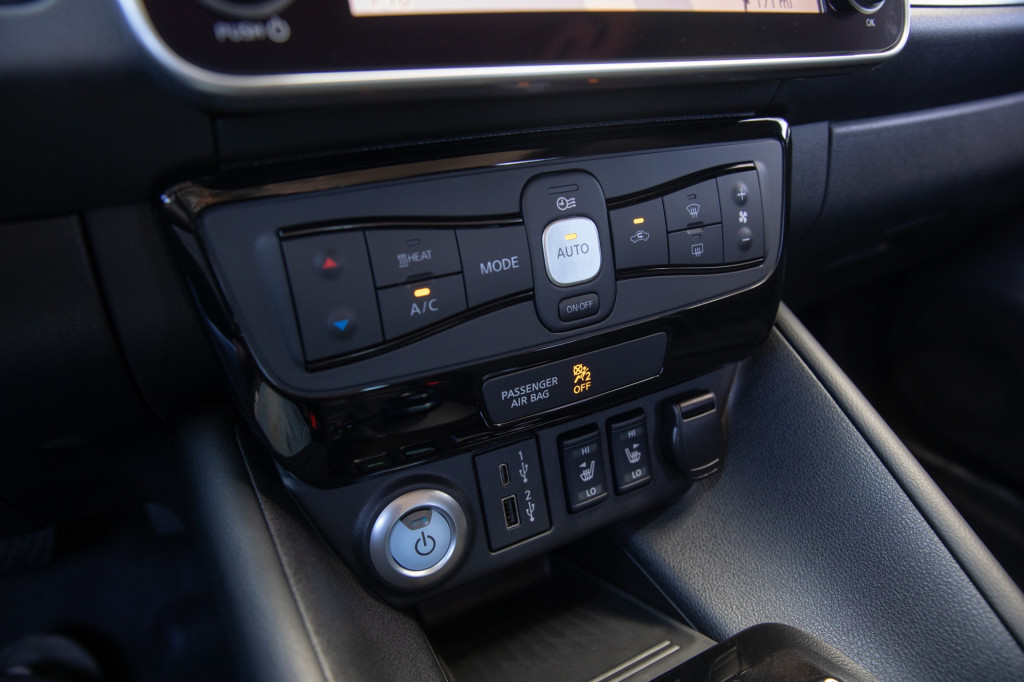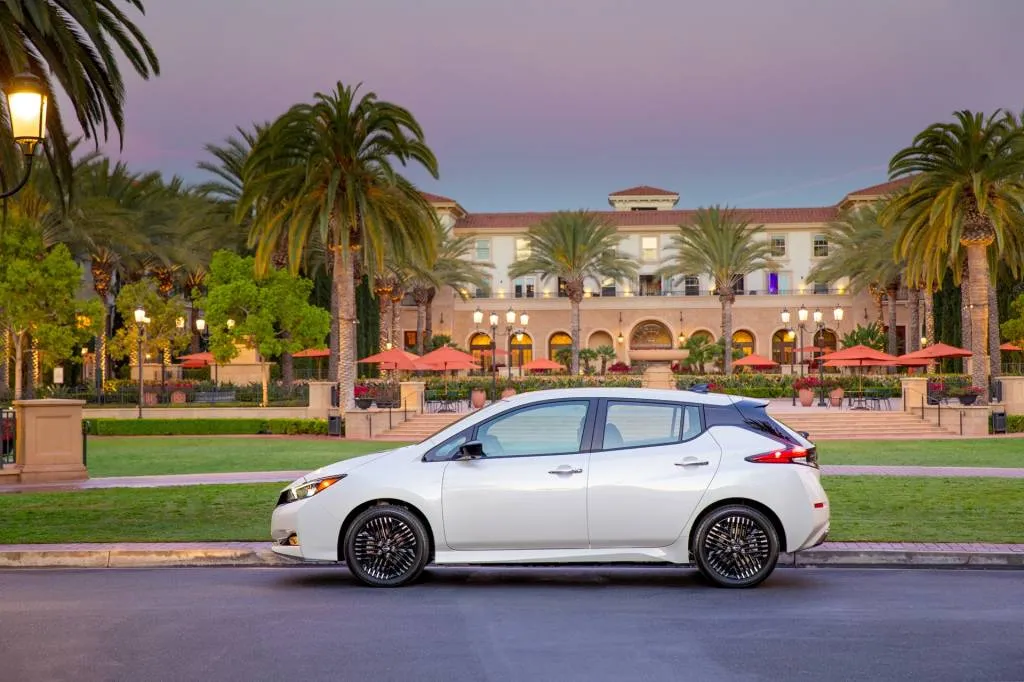[ad_1]
EV range loss in cold weather is well documented, but EVs may have an advantage over internal-combustion cars when driving in hot weather with the air conditioning blasting.
Recurrent, which produces battery health reports for used EVs, analyzed data from 7,500 vehicles to see if hot temperatures and air conditioner use affected range. The analysis found that air conditioning has a much smaller impact on range than heaters used to warm up the cabin cold weather, only beginning to chip away at total range when temperatures get above 85 degrees Fahrenheit.
Among vehicles analyzed, the average range loss at 80 degrees was just 2.8%, creeping up to 5% at 90 degrees. The data also showed average range loss of 31% at 100 degrees, but Recurrent noted that this is based on a very limited sample.

2023 Nissan Leaf
The limited number of EV drivers out in triple-digit temperatures illustrates one reason why hot weather isn’t as much of an issue for range as cold weather. In the summer, the average temperature change needed to make a car interior comfortable is smaller, at 20 degrees to 25 degrees, compared to 50 degrees in winter, according to Recurrent. So less energy is required.
Unlike internal-combustion cars, there is also no difference in energy use when running the air conditioning in an EV while idling or driving. That’s because EVs don’t have a heat-producing engine that the air conditioning has to fight against to lower temperatures. Lack of engine heat can be a problem for warming EV cabins in cold temperatures, but it’s an advantage here.
EVs can also be set to pre-cool their cabins while plugged in, which can save a significant amount of energy, Recurrent noted. The most-energy intensive part of air conditioning use is cooling down the cabin, with less energy needed to maintain a set temperature. It may take 3-5 kw of energy to get a 95 degree car to a comfortable temperature of around 70 degrees, according to Recurrent, but it takes only around 1 kw to keep it there.

2024 Nissan Leaf
Recurrent has also looked at cold-weather range loss, finding that it does indeed occur, but varies by model. EVs with heat pumps tend to retain most of their range, the firm’s analysis found. Recurrent also found that most EVs now have more than enough range to cover driving needs, so it essentially amounts to more time spent at the charger.
Weather extremes can also lead to more battery degradation, but as data from the firm recently suggests and confirms, it’s not likely to brick your EV.
[ad_2]
Source link




